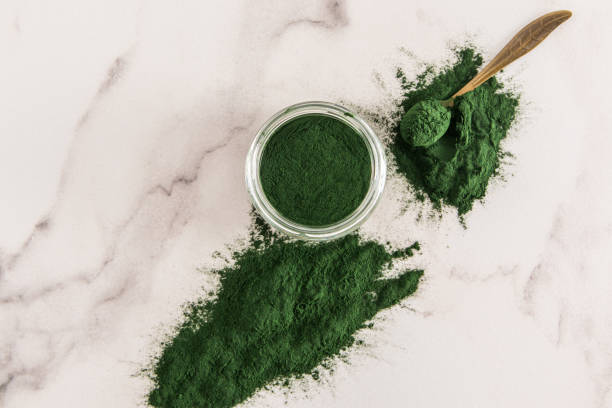The Secret Boost Spirulina Provides to Your Immune System

The Secret Boost Spirulina Provides to Your Immune System
In our constant pursuit of a strong and resilient immune system, we often overlook the power of natural solutions. Among these, spirulina, a microscopic blue-green algae, stands out as a true superfood with extraordinary immune-boosting properties. This article aims to enlighten you about the wonders of spirulina and how it can fortify your immune system. We will explore the benefits and practical ways to incorporate spirulina into your daily routine. Prepare to unlock the secret boost that spirulina offers and take charge of your immune health!
Nutrition
Here is an overview of the key nutrients found in spirulina:
- Protein: Spirulina is considered a complete protein source as it contains all nine essential amino acids required by the human body. It boasts a protein content of approximately 60-70% by weight, making it one of the richest plant-based protein sources available.
- Vitamins: Spirulina is a rich source of various vitamins, including vitamin A, B complex (B1, B2, B3, B6, and B9), C, D, and E. These vitamins help in supporting overall health, energy production, immune function, and antioxidant protection.
- Minerals: Spirulina contains an array of essential minerals such as iron, magnesium, calcium, potassium, zinc, selenium, and phosphorus. These minerals are crucial for various bodily functions, including maintaining strong bones, supporting enzyme activity, and promoting proper nerve and muscle function.
- Antioxidants: Spirulina is packed with antioxidants such as phycocyanin, chlorophyll, beta-carotene, zeaxanthin, and various other carotenoids. These antioxidants help combat oxidative stress, neutralize harmful free radicals, and protect cells from damage caused by environmental factors.
- Essential Fatty Acids: Spirulina contains a small amount of essential fatty acids, including gamma-linolenic acid (GLA) and alpha-linolenic acid (ALA). These fatty acids play a crucial role in supporting brain health, reducing inflammation, and maintaining healthy cell membranes.
What is Spirulina?
Before we dive into the immune-boosting prowess of spirulina, let's gain a deeper understanding of this extraordinary organism. Spirulina, scientifically known as Arthrospira platensis, is a type of cyanobacteria that thrives in freshwater lakes, ponds, and alkaline water bodies. This exceptional superfood with immense potential for bolstering our immune defenses.
Spirulina's Impact on the Immune System
The immune system plays a critical role in defending our bodies against harmful pathogens and maintaining overall health. Spirulina's immune-boosting properties stem from its unique composition. Abundant in vitamins such as vitamin C, E, and B-complex vitamins, spirulina provides essential nutrients that support optimal immune function. Additionally, minerals like iron, magnesium, and selenium found in spirulina contribute to a robust immune system.
One of spirulina's key components, phycocyanin, is responsible for its vibrant blue-green color. Phycocyanin acts as a potent antioxidant and exhibits remarkable anti-inflammatory effects, safeguarding our cells from damage and bolstering immune responses. Furthermore, spirulina contains polysaccharides that stimulate antibody production and enhance the activity of white blood cells, our body's primary defense against infections.
Spirulina Health Benefits
Several studies support spirulina's positive influence on the immune system. A notable study published in the Journal of Medicinal Food revealed that spirulina supplementation significantly increased antibody production, an essential mechanism for combating pathogens and strengthening overall immunity.
Beyond its immune-boosting capabilities, spirulina's potent antioxidants alleviate oxidative stress within the body, safeguarding cells and reinforcing immune responses. Research published in Oxidative Medicine and Cellular Longevity underscored spirulina's ability to modulate immune activity and protect against various diseases.
Additionally, spirulina offers other health benefits. It shows promise in improving gut health by promoting the growth of beneficial gut bacteria. Spirulina's nutrient-rich composition also enhances energy levels, aids in detoxification processes, and supports cardiovascular health. By improving these aspects of overall wellness, spirulina contributes to a stronger immune system.
Practical Tips for Incorporating Spirulina
Incorporating spirulina into your daily routine is simpler than you might think. Here are some practical tips to make the most of its immune-boosting potential:
- Start with small doses: Begin with a low dose of spirulina, around 1-3 grams per day, and gradually increase it as your body adjusts.
- Choose quality sources: Opt for reputable brands or trusted sources to ensure you're consuming high-quality spirulina without contaminants.
- Consider supplements: Spirulina is available in various forms, including tablets, capsules, and powdered supplements. Select the one that best suits your preferences.
- Add it to smoothies or juices: Blend spirulina powder with your favorite fruits and vegetables to create nutritious and immune-boosting smoothies or juices.
- Incorporate into recipes: Sprinkle spirulina powder onto salads, soups, or dips to add vibrant color and nutritional boost to your meals.
If you have any underlying health conditions or are on medication, consult your healthcare provider before incorporating spirulina into your routine.
Conclusion
Spirulina's exceptional immune-boosting properties make it an invaluable addition to our wellness arsenal. With its rich nutritional content and proven benefits, spirulina offers a natural and effective way to fortify our immune systems. Incorporating spirulina into our daily routines can tap into its remarkable power and protect our bodies against pathogens and diseases.
